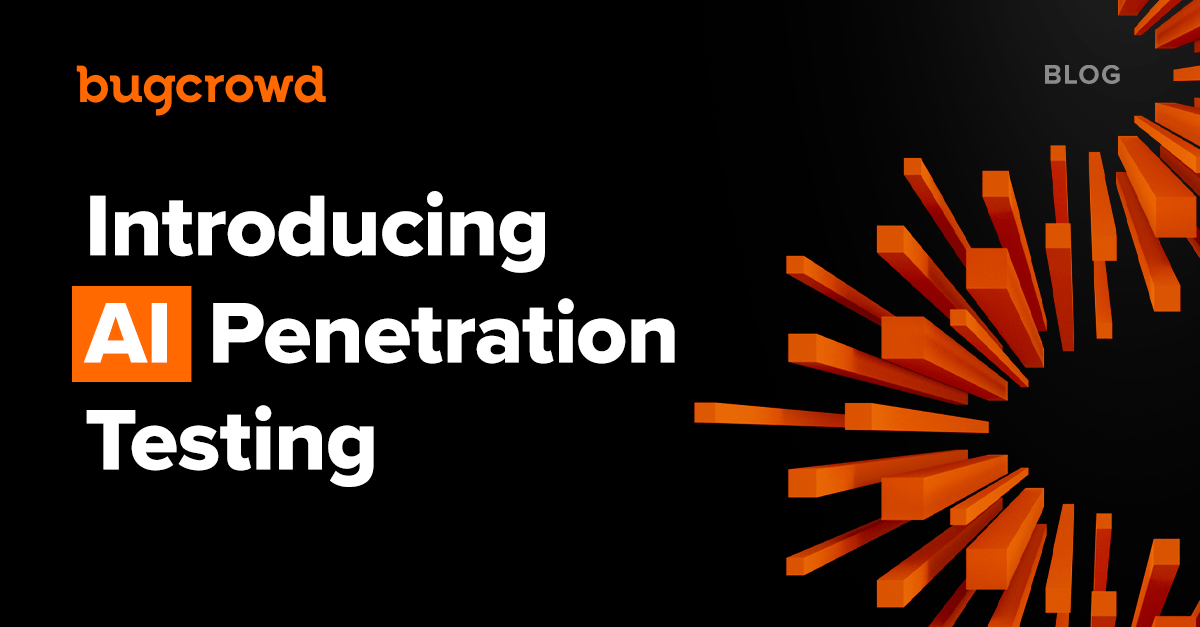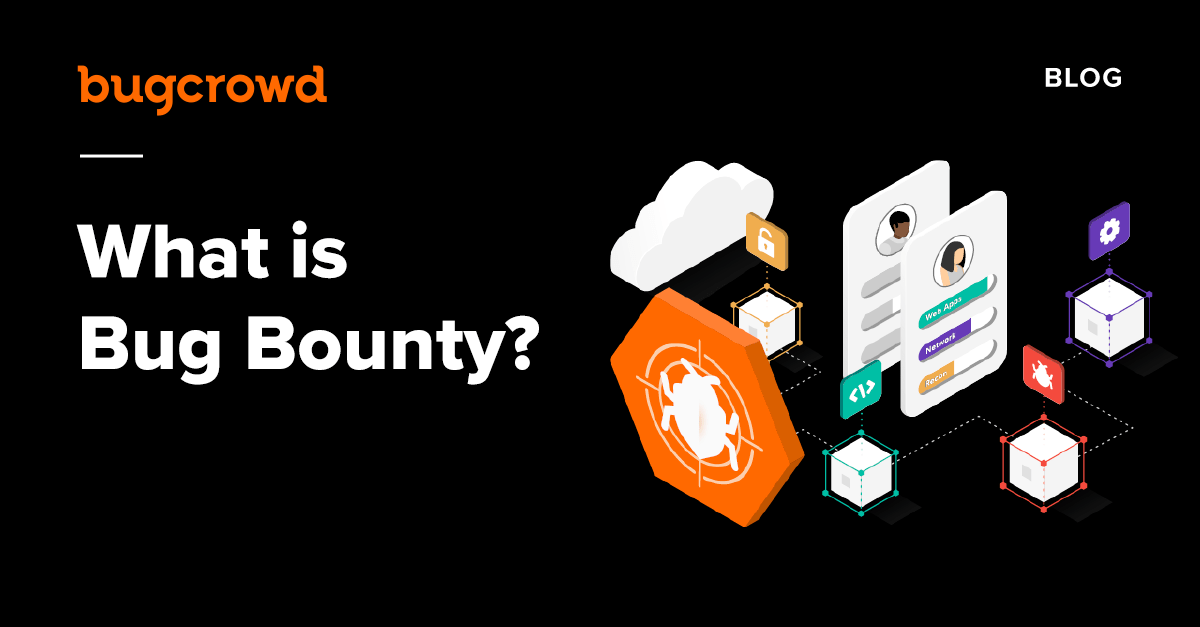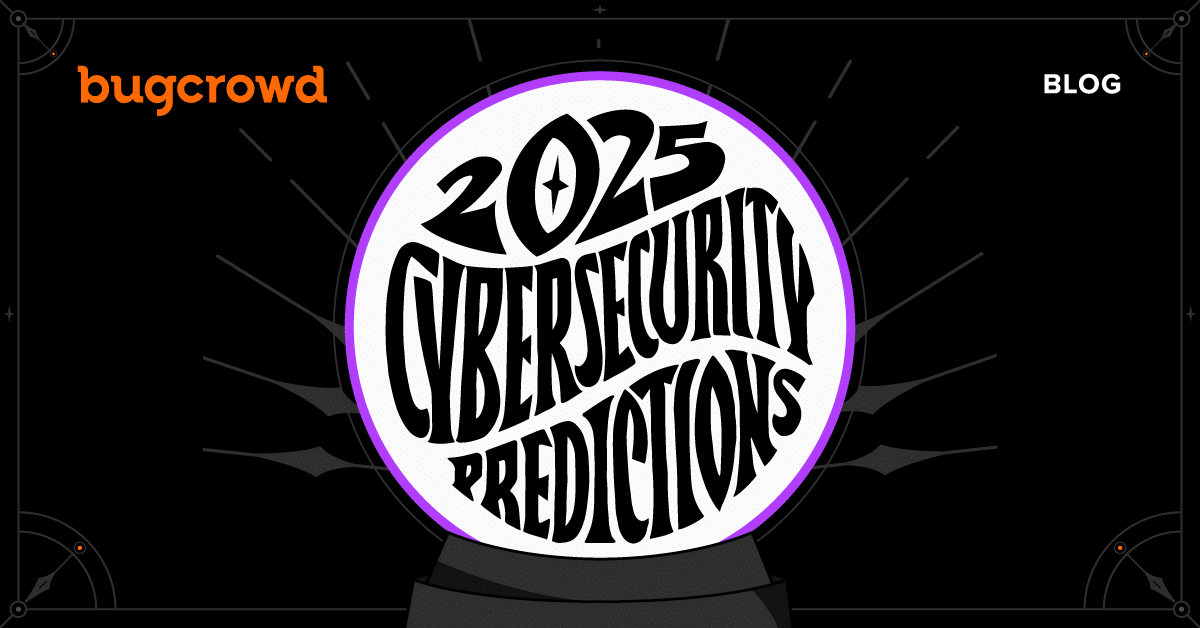Originally posted April 2024 and updated in December 2024.
As access to AI technology becomes more widespread, organizations in every industry are adopting these cutting-edge technologies. However, as AI technology continues to be rapidly commercialized, new potential security vulnerabilities are quickly being surfaced.
Organizations need to be testing their Large Language Model (LLM) applications and other AI systems to be sure they are free of common security vulnerabilities. To help with this effort, Bugcrowd is excited to announce the launch of AI Penetration Testing.
A hacker’s perspective of pen testing for LLM apps and other AI systems
There’s no better way to understand the potential severity of vulnerabilities in an AI system than the ethical hackers who are testing these systems every day. Joseph Thacker, aka rez0, is a security researcher who specializes in application security and AI. We asked him to break down the current landscape of new vulnerabilities specific to AI.
“Even security-conscious developers may not fully understand new vulnerabilities specific to AI pentesting, such as prompt injection, so doing security testing on AI features is extremely important. In my experience, many of these new AI applications, especially those developed by startups or small teams, have traditional vulnerabilities as well. They seem to lack mature security practice making pentesting crucial for identifying those bugs, not to mention the new AI-related vulnerabilities.
Naturally, smaller organizations will have less security emphasis, but even large enterprises are moving very quickly to ship AI products and features, leading to more vulnerabilities than they would typically have. Since Generative AI applications handle sensitive data (user information and often chat history), as well as often making decisions that impact users, pentesting is necessary to maintain trust and protect user data.
Regular pentesting of AI applications helps organizations stay ahead as the field of AI security is still in its early stages and new vulnerabilities are likely to emerge,” rez0 said.
To learn more about AI pen testing, check out the blog AI Deep Dive: Pen Testing.
What AI penetration testing includes
Bugcrowd AI Pen Tests help organizations uncover the most common application security flaws using a testing methodology based on our open-source Vulnerability Rating Taxonomy (VRT).
All AI Pen Tests include:
- Trusted, vetted pentesters with the relevant skills, experience, and track record needed for your specific requirements
- 24/7 visibility into timelines, findings, and pentesting progress
- A testing methodology based on the OWASP Top 10 for LLMs and more
- The ability to handle complex applications and features
- Methodologies for both Standalone LLM and Outsourced applications
- A detailed final report
- Retesting (with one report update)
AI Pen Testing Frequently Asked Questions
What is AI Penetration Testing?
AI penetration testing is the process of evaluating the security of AI systems, including applications like chatbots and machine learning models. It aims to identify vulnerabilities that could lead to unauthorized access, data breaches, or operational disruptions.
Why is AI Penetration Testing Important?
As AI systems become more integrated into business operations, they process sensitive data and make critical decisions. Penetration testing helps organizations identify and mitigate risks associated with these systems, maintaining user trust and safeguarding sensitive information. A penetration tester can utilize AI tools in order to help deliver faster and more reliable threat intelligence and security testing results.
What are some common vulnerabilities in AI systems?
Common vulnerabilities in AI systems include:
- Prompt injection (manipulating AI models through inputs)
- Data poisoning (feeding malicious data to AI models)
- Model inversion (extracting sensitive information from the model)
- Traditional vulnerabilities (like SQL injection, if applicable)
How does AI enhance the effectiveness of penetration testing?
An AI Model can improve penetration testing by:
- Automating the identification of vulnerabilities
- Analyzing patterns and behaviors within the AI system
- Providing context-aware feedback to testers
- Reducing false positives by deduplicating vulnerability reports
Who should conduct Artificial Intelligence Penetration Testing?
AI penetration testing should be conducted by experienced security professionals with a background in both cybersecurity and AI technologies. This includes ethical hackers, security researchers, and firms specializing in AI security.
How often should AI systems be tested?
Given the rapid evolution of AI technology and emerging threats, organizations should conduct regular penetration testing. This could be quarterly or semi-annually, depending on the sensitivity of the data and the frequency of updates to the AI system.
What is the process of AI penetration testing?
The process typically involves:
- Scoping and planning the penetration test for an attack vector
- Conducting reconnaissance to identify potential vulnerabilities
- Executing penetration tests using both automated tools and manual techniques
- Analyzing results and reporting vulnerabilities
- Providing recommendations for remediation
What is the difference between traditional penetration testing and AI penetration testing?
While traditional penetration testing focuses on conventional applications and systems, AI penetration testing specifically addresses the unique vulnerabilities and operational contexts of AI systems, including their learning algorithms and data management practices.
Can AI perform penetration tests on its own?
AI can assist penetration testing by guiding scanners and automating certain tasks, but human oversight is crucial. AI currently lacks the nuanced understanding of context and consequence that human testers provide, especially in complex environments.
What should organizations look for when hiring a penetration testing service for AI systems?
Organizations should seek services that:
- Have experience in both cybersecurity and AI technologies
- Use up-to-date methodologies and tools
- Can provide tailored testing based on the specific AI system being evaluated
- Offer comprehensive reporting and recommendations for remediation
What standards exist for AI security and penetration testing?
The international AI systems standard, ISO/IEC 42001, outlines requirements for managing AI technologies within organizations. This standard emphasizes security throughout the entire lifecycle of AI systems, addressing the unique challenges associated with AI, including ethical considerations and continuous learning.
How can organizations stay updated on AI vulnerabilities and best practices?
Organizations can stay informed by:
- Engaging in continuous education and training in AI and cybersecurity
- Participating in industry conferences and workshops
- Following reputable cybersecurity publications and research
- Collaborating with security experts and firms specializing in AI security
Get started with AI pen testing
With Bugcrowd AI Pen Tests, your organization can expect the same caliber and quality of testing that has made us an industry leader. Our CrowdMatch technology means you’ll be paired with pentesters with experience in testing AI applications, which is not a common skill among pentesters at other providers.
Your organization can start your pen test in as little as 72 hours. Learn more and access a decade of vulnerability intelligence from the Bugcrowd Platform in every pen test engagement.
Here are some additional resources:



